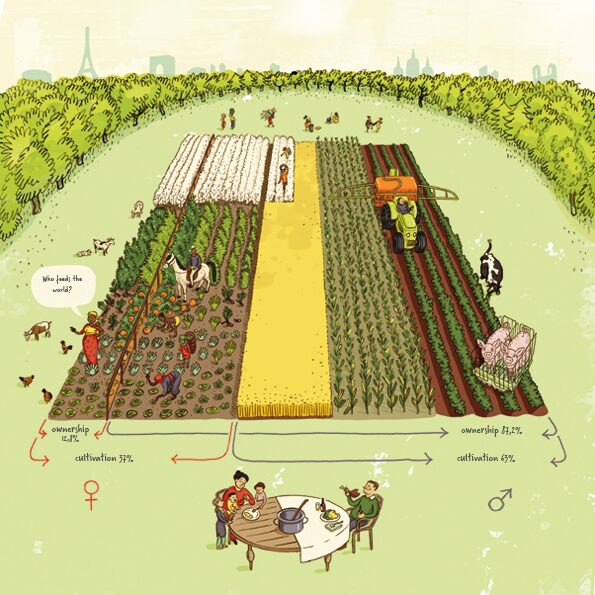Agriculture and gender

How women and men eat and work
Half of heaven belongs to women, as the saying goes. Only an eighth of the fertile earth belongs to them, and in Germany only a twelfth. When it comes to tilling the fields, on the other hand, women are in the lead, especially when it concerns work done by hand. The United Nations puts women’s share of agricultural work at 38 percent worldwide. That is the tip of the iceberg. Relief, social work and subsistence farming work are added to this. On top of that, everything that is considered ‘housework’: hauling water and wood, processing, preserving and cooking food. In fact, women do well over half of the work that feeds the world’s population, while also investing much more reliably than men in the household (food, health, education) and the future of our children..
Men lead in other areas: in Germany, men eat twice as much meat as women and drink three times as much alcohol. In many poorer regions of the world, the man often eats first, then the children, then the woman, especially in times of crisis. This is why significantly more women than men suffer from hunger and malnutrition. If women, especially in rural areas, had the same rights and opportunities as men and were better protected from violence, there would be significantly less hunger and malnutrition in the world.
